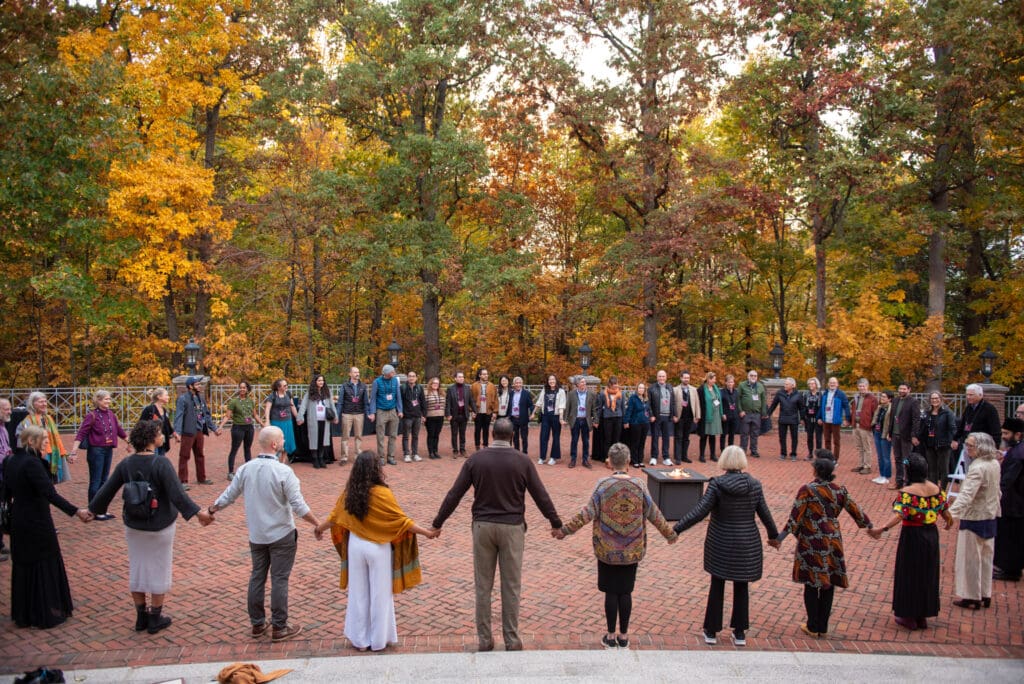
On October 28-31, 2024, Mind & Life convened 60+ researchers, contemplatives, practitioners, Board members, donors, and staff outside of Washington, DC for this first-of-its-kind envisioning gathering. The goal was to explore the evolution of contemplative research and embrace contemporary challenges—from growing polarization to climate change—with a sense of purpose and possibility.
The event, grounded in daily contemplative practice, engaged attendees in rich discussion around 15 topics (identified through a pre-event participant survey).
- What are the possibilities for contemplative research to interface with emerging trends in technology and artificial intelligence?
- What are the possibilities for contemplative research to interface with research on psychedelics?
- What are the possibilities for contemplative research to explore our interconnection with nature?
- What are the possibilities for contemplative research to support wisdom and healthy dialogue in the face of political polarization and extremism?
- What are the possibilities for contemplative research to increase our understanding of subtle body/energy systems?
- What are the challenges and opportunities involved in leveraging contemplative research into systems change?
- What are the challenges and opportunities as we consider scaling promising interventions?
- What are the challenges and opportunities in sustaining our community’s professional advancement?
- What are the challenges and opportunities in fostering greater diversity in contemplative research (generational, geographical, cultural, racial/ethnic, gender/identity)?
- How can we measure the impact of our collective work in contemplative research in the world?
- How are ethics conceptualized and centered in contemplative research?
- How can we clarify the definition of “contemplative” as the work broadens into broader domains and touches more diverse ways of knowing?
- What are the challenges and opportunities in defining standards of rigor as contemplative research expands into broader domains?
- What are the challenges and opportunities for expanding this work to include other spiritual traditions?
- How do we incorporate first-person phenomenology into our work? What does it mean to take subjective experience seriously, and how can this be incorporated deeply with the more objective approaches of modern research?
Over two full days, participants—including both emerging and established researchers—formed small groups, engaging in far-reaching discussion around the questions. Attendees affirmed the deep relevance of the themes presented and the event’s interactive design, which prioritized relationship-building and idea generation over defining specific outcomes.
Next steps include the creation of working groups, more clearly defining terms, pursuing funding to continue and deepen the inquiry, generating more research and discussion, and fostering greater community engagement and collaborations.
The proceedings are described in two Mind & Life blog posts:
Exploring What’s Next in Contemplative Research: 15 Questions to Consider by Erin McCarthy
Envisioning the Future of Contemplative Research—Grounded in an Ethics of Compassion by Yikai Xu

